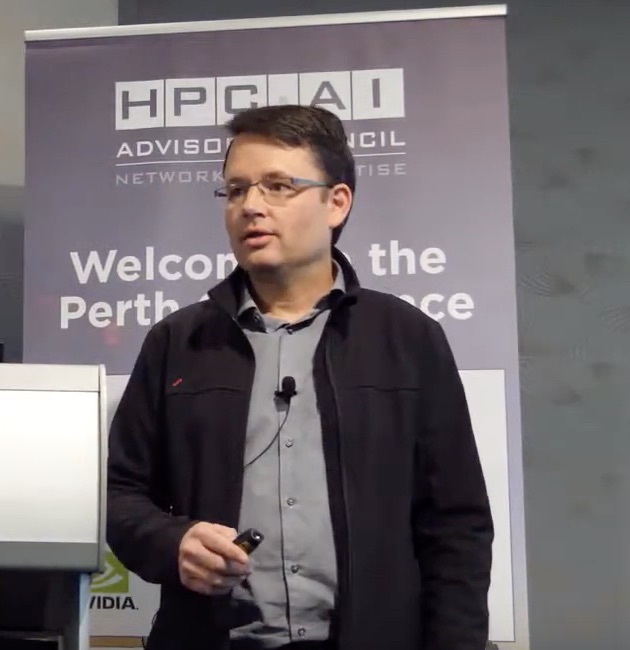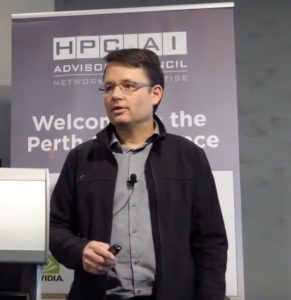In this video from the Perth HPC Conference, Werner Scholz from XENON Systems presents: Exceeding the Limits of Air Cooling to Unlock Greater Potential in HPC.
A decade ago, 100 watts per CPU was devastating to thermal design. Today, Intel’s highest performing CPUs (e.g. Intel Cascade Lake-AP 9282 processor) have a thermal design envelope of 400 watts. There really is no end in sight, and accommodating more power is critical to advancing performance. The ability to dissipate the resulting heat is the hard ceiling that systems face in terms of performance – giving greater importance to liquid cooling breakthroughs. With liquid cooling, less energy is expended to cool systems – a significant savings in HPC deployments with arrays of servers drawing energy and generating heat. Electrical current drives the CPU and enables it to function. This electrical power is converted into thermal energy (heat). To maintain a stable temperature, the CPU needs to be cooled by efficiently removing this heat and releasing it. Liquid cooling is the best way to cool a system because liquid transfers heat much more efficiently than air. From an environmental perspective, liquid cooling reduces both those characteristics to create a smarter and more ecological approach on a grand scale. The cascade of value continues, as ambient heat removed from systems can then be used to heat buildings and augment or replace traditional heating systems. It’s an intelligent approach to thermal management, distributing the economic value of reduced energy use and transforming heat into an enterprise asset.
Werner Scholz is CTO and Head of R&D at XENON Systems.






This talk was presented at the HPC Advisory Council meeting in Perth, Australia.
Here is the link to the other presentations: